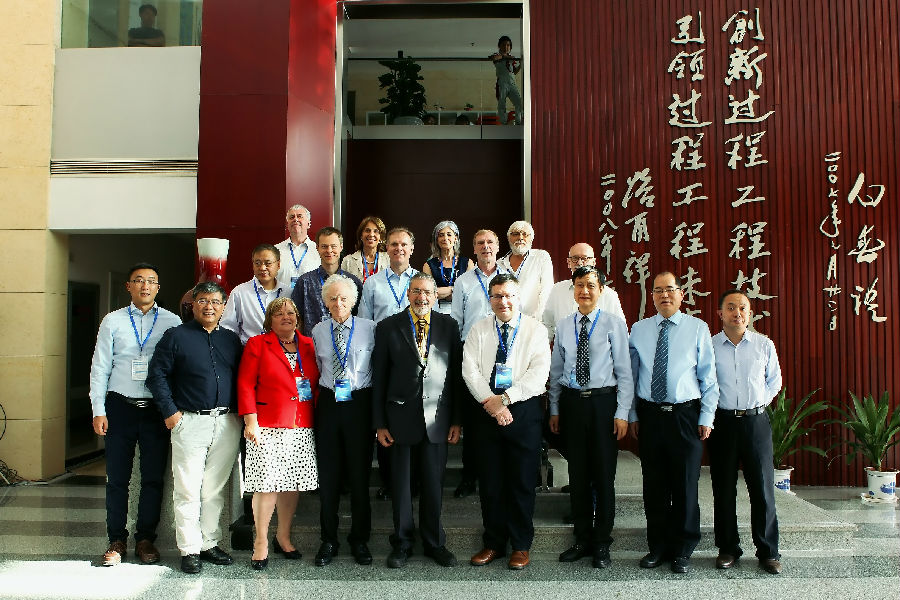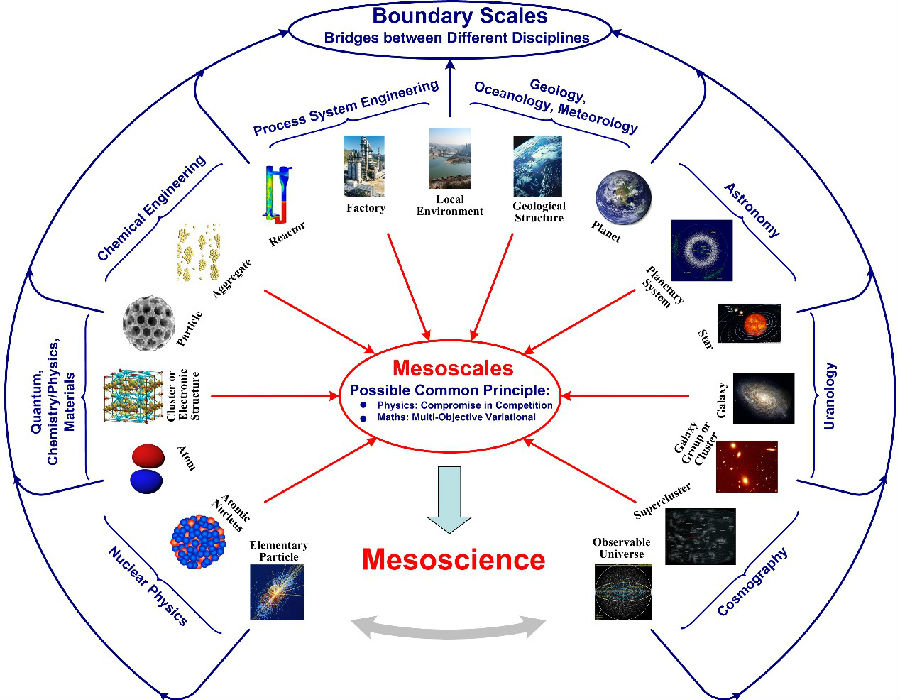IPM
Initiated in 2018, the International Panel of Mesoscience (IPM) aims to promote and review the science and technology related to mesoscales in nature and engineering. It also organizes the activities, conferences, and seminars to discuss the recent development of Mesoscience in different fields. The IPM involves experts from all over the world who contribute to the work of IPM and volunteer their time and efforts to promote the research of Mesoscience and its roles in science and engineering. IPM experts also review the scientific findings and publications relevant to Mesoscience each year to provide a comprehensive summary and review.
There is a gap between the microscale to the macroscale, which leads to our poor understanding on the complex phenomena. For instance, we know well the structure of atoms and molecules. But we face challenge to build up desired materials by assembling atom or molecules together. In chemical engineering, we know well the structures and physical properties of particles. But we have difficulty to predict their floating and aggregation in fluidized beds, which leads to the problems of scale up. Therefore, to study complex systems requires the observation of phenomena at multiple scales, without ignoring interactions, which is the main issue to be discovered by mesoscience.
In the early of 1980s, when scientists investigated the complex phenomena in fluidized bed, they found that the floating and aggregation of particles are dominated by the particle phase to realize minimal packing voidage and the gas phase to realize minimal resistance. The compromise in competition of these two mechanisms dominates the dynamics of particles aggregates, as well as the reaction and transport properties of fluidized bed. Based on this understanding, the EMMS (energy minimization multiscale) model was developed to depict the complex phenomena. After the continuous effort of 4 decades, the EMMS method has been evaluated in different systems, including turbulence, materials, protein, emulsion, gas-liquid flow and so on.
In the past 15 years, the EMMS model and the mesoscience has experienced a quick development. In 2013, the National Nature Science Foundation of China has launched a Major Research Program of Mesoscience, which attracted scientists with different background to pay great attention on mesoscales. With the validation of more and more case studies from different fields, the concept of mesoscience has gained wider and wider attention in the international academic community. In 2018, more than 20 well-known scientists from 10 countries gathered in Beijing to reach a consensus about mesoscience.
After five years of hard work and accumulation, a non-governmental international academic organization, the International Panel of Mesoscience (IPM) is founded by 58 renowned scholars and experts in different fields of Mesoscience. In April 2023, the first general assembly of IPM voted the “Constitution of the International Panel of Mesoscience”. Also at the meeting, the first Council was elected and Secretariat set up. The President of the Council is Academician Li Jinghai of the Chinese Academy of Sciences, and the Vice President are Academician Richard Williams of the Royal Academy of Engineering and Dr. Bernd Sachweh, Global Vice President of BASF, Germany.
The mission of the organization is to establish an international mechanism for dialogue and cooperation in Mesoscience; to promote academic exchange, crossing and convergence of disciplines, scientific and technological innovation, personnel training and international cooperation; and to promote the study and development of Mesoscience in all fields of natural, engineering and social sciences.


